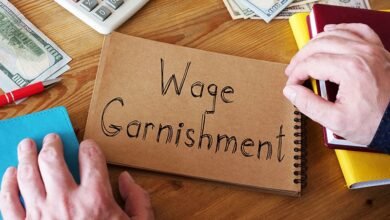Bankruptcy and Gambling Debt: Seeking a Fresh Start

Bankruptcy and gambling debt are two challenging aspects of life that many individuals find themselves facing. In this article, we will delve into the intricate relationship between bankruptcy and gambling debt, exploring the impacts, legalities, and steps toward recovery.
Definition of Bankruptcy
Bankruptcy is a legal status that declares an individual or business unable to repay their debts. It provides a fresh start by eliminating or restructuring financial obligations.
The Link Between Bankruptcy and Gambling Debt
Gambling debt is a common contributor to financial distress leading to bankruptcy. Understanding this link is crucial in addressing both issues effectively.
Understanding Gambling Debt
Impact of Gambling Addiction
Gambling addiction not only affects one’s mental health but also takes a toll on financial stability. The compulsive need to gamble often results in accumulating significant debt.
Financial Consequences
The consequences of gambling debt go beyond monetary loss. Relationships, careers, and overall well-being can be adversely affected, pushing individuals toward bankruptcy.
Recognizing the Signs of Bankruptcy
Warning Indicators
Recognizing early signs of financial distress is key to preventing bankruptcy. This section highlights common indicators that individuals should be aware of.
Seeking Professional Advice
Consulting financial experts and professionals can provide valuable insights and guidance on managing debt and avoiding bankruptcy.
Legal Aspects of Bankruptcy and Gambling Debt
Types of Bankruptcy
Exploring the different types of bankruptcy (Chapter 7, Chapter 13) and understanding their implications on gambling debt.
How Gambling Debt is Treated in Bankruptcy
Insights into how bankruptcy proceedings handle gambling debt, offering a legal perspective on debt relief.
Steps to File for Bankruptcy
Gathering Financial Information
Preparing for bankruptcy involves collecting detailed financial information, a crucial step in the filing process.
Choosing the Right Bankruptcy Chapter
Understanding the nuances of Chapter 7 and Chapter 13 bankruptcy and selecting the most suitable option based on individual circumstances.
Alternatives to Bankruptcy
Debt Consolidation
Exploring alternatives like debt consolidation as a viable option to manage and repay debts without resorting to bankruptcy.
Credit Counseling
The role of credit counseling in guiding budgeting, debt management, and avoiding bankruptcy.
Rebuilding After Bankruptcy
Creating a Financial Plan
Developing a comprehensive financial plan to regain stability post-bankruptcy.
Rebuilding Credit
Strategies for rebuilding credit scores after bankruptcy and establishing a positive financial history.
The Emotional Toll
Coping with Bankruptcy and Gambling Debt
Addressing the emotional impact of bankruptcy and gambling debt, emphasizing the importance of mental well-being.
Seeking Support
Encouraging individuals to seek support from friends, family, and mental health professionals during challenging times.
Read More: Bankruptcy and the Gig Economy: Freelancers and Contractors
Common Misconceptions
Bankruptcy Stigma
Dispelling common stigmas associated with bankruptcy, highlighting it as a legal and financial strategy.
Myths Surrounding Gambling Debt
Addressing misconceptions about gambling debt to promote a better understanding of its complexities.
Impact on Credit Score
Short-Term Effects
Analyzing the immediate impact of bankruptcy on credit scores and financial standing.
Long-Term Recovery
Strategies for long-term credit score recovery and financial stability post-bankruptcy.
Legal Considerations
Hiring a Bankruptcy Attorney
The importance of consulting with a bankruptcy attorney to navigate legal complexities and ensure the best outcome.
Understanding Legal Rights
Empowering individuals with knowledge about their legal rights in the context of bankruptcy and gambling debt.
Case Studies
Real-life Stories of Individuals Overcoming Bankruptcy and Gambling Debt
Exploring inspiring case studies of individuals who successfully navigated bankruptcy and gambling debt challenges.
Lessons Learned
Extracting valuable lessons from real-life experiences to guide others on their journey to financial recovery.
Government Assistance Programs
Available Resources
Highlighting government assistance programs and resources that individuals can leverage during financial crises.
Eligibility Criteria
Understanding the eligibility criteria for accessing government assistance in the context of bankruptcy and gambling debt.
Seeking Professional Help
Financial Advisors
The role of financial advisors is to provide personalized guidance and strategies to manage debt effectively.
Mental Health Professionals
Highlighting the importance of seeking support from mental health professionals to address the emotional toll of financial challenges.
Read More: Debt Settlement vs. Debt Consolidation: Choosing Wisely
Conclusion
In conclusion, the journey from bankruptcy and gambling debt to a fresh start is undoubtedly challenging, yet filled with opportunities for growth and recovery. By understanding the intricacies of these financial struggles, recognizing warning signs, and seeking professional assistance, individuals can pave the way for a brighter financial future. It’s essential to embrace alternatives to bankruptcy, rebuild both financially and emotionally, and debunk the misconceptions surrounding these challenges.
Remember, seeking support from loved ones, financial advisors, and mental health professionals is not a sign of weakness but a proactive step toward regaining control. By fostering resilience, learning from real-life experiences, and utilizing available resources, individuals can embark on a path toward financial stability, leaving behind the shadows of bankruptcy and gambling debt. The journey may be tough, but the destination—a fresh start—is undoubtedly worth the effort.
FAQs
Is bankruptcy the only solution for gambling debt?
Bankruptcy is one option, but alternatives like debt consolidation and credit counseling may also be considered.
How long does bankruptcy stay on a credit report?
The impact of bankruptcy on a credit report varies but typically lasts for seven to ten years.
Can I file for bankruptcy without an attorney?
While it’s possible, consulting with a bankruptcy attorney is advisable to navigate legal complexities.
Are all types of gambling debt treated the same in bankruptcy?
Different types of gambling debt may be treated differently based on legal considerations and specific circumstances.
Can government assistance programs help with gambling debt?
Some government assistance programs may offer support, depending on eligibility criteria.











